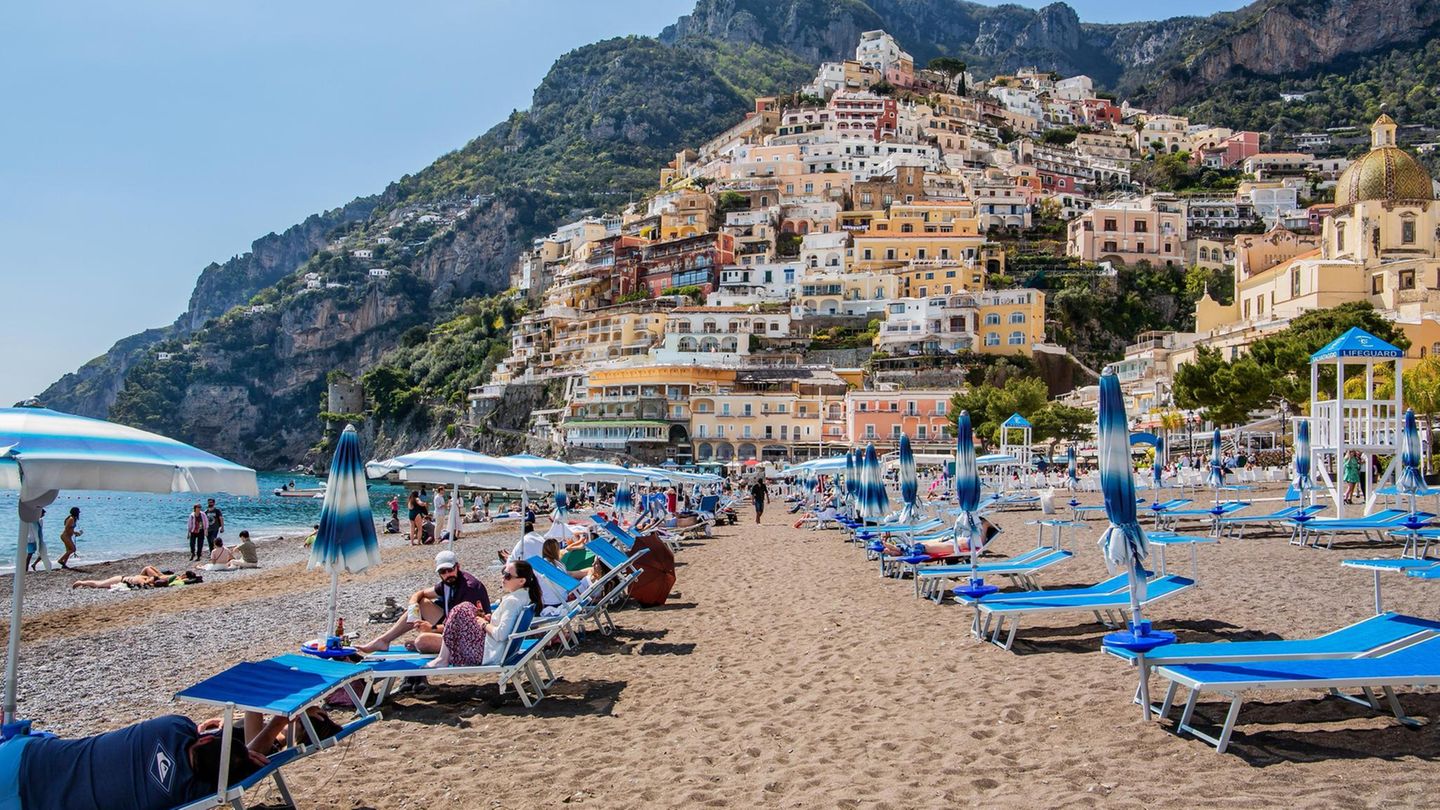Paid beach resorts have a long tradition in Italy. After years of dispute, EU-wide tenders are now intended to ensure more competition – but the operators are threatening to strike during the peak holiday season

This is original content from the Capital brand. This article will be available for ten days on stern.de. After that, you will find it exclusively on capital.de. Capital, like the star to RTL Germany.
Closing the parasols, rolling up the towels, clearing away the loungers. This could soon be a threat to holidaymakers along the Italian coast. The operators of the popular beach resorts are planning to go on strike – right in the middle of the high season at the best time of summer.
They are not interested in more money or better working hours, but in keeping their licenses to operate the lidos and thus their livelihood. Some operators say that 300,000 jobs are at risk. The Italian government should have implemented an EU directive for new procurement procedures long ago, but has refused to do so for years. Now things could get serious.
Beach day or strike day?
The beaches in Italy belong to the state and are usually managed by the municipalities or regions. Accordingly, the municipalities also issue the so-called concessions, the official permits for the commercial use of the beaches, for example with restaurants or lidos with huts or loungers. Typically, however, this often only happens once in Italy, because the licenses tend to remain in family ownership and are passed down through generations. Italy’s Prime Minister Giorgia Meloni has already defended the paid lidos as part of the country’s historical and cultural heritage.
Not only do the beach resorts have a long tradition in Italy, but renting out the colorful parasols and deck chairs is also a lucrative business: an umbrella, deck chair and deck chair usually cost between 20 and 30 euros per day. The think tank “Centres for European Policy Network” (Cep) calculated that the companies pay an average of only around 7,600 euros per year for their concession, but generate 260,000 euros in sales.
It’s no wonder that the operators don’t want competition – but there will certainly be competition if new tenders are held in accordance with EU rules. Italy’s beach concessions should have been advertised Europe-wide according to comprehensible criteria since 2006 and should no longer be automatically renewed. Europe-wide also means that foreign investors could submit better offers than locals.
Italy has been fighting against this for years. There have been several proceedings against the country for breach of contract, and last year the European Court of Justice (ECJ) also issued a ruling. Initially, a law was passed to extend the concessions until 2023. But in order to settle the dispute, the subsequent government under Mario Draghi agreed to hold new auctions to award the concessions at the end of 2023. Before that could happen, the right-wing populist government of Giorigia Meloni took over – and after taking office, it extended the validity of the concessions again until the end of 2024.
Summer 2024
Even stars need a vacation – and here they spend it
Meloni has coast re-measured
The beach resort operators are part of Meloni’s electorate. That is why she probably tried to circumvent the EU directive by showing that Italy still has enough free beaches and had the Italian coast re-measured. In fact, the country suddenly had 3,000 kilometers more beach, but Brussels does not consider this particularly credible. This attempt at trickery was not well received in Italy itself either.
In the spring, the Italian Council of State called for a tendering process to be launched immediately for the awarding of beach concessions under genuine competitive conditions. According to the ruling, there is certainly a “short supply” of beaches in Italy. The decision of the Meloni government is therefore likely to be invalid, as the Council of State is the final authority in administrative matters in Italy.
As the “” reports, the first Italian municipalities are now preparing their own new tenders and are even drafting compensation guidelines for operators who lose their long-standing concessions. But the beach entrepreneurs are demanding more: They want the government to guarantee them the equivalent of at least two years of their turnover as compensation for lost business. “That is the absolute minimum,” Antonio Capacchione, president of the Italian Association of Beach Entrepreneurs, told the “Financial Times”. “We demand fairness. Is it morally justifiable for someone [ein Geschäft] just like that, something that was built with the sacrifices of another entrepreneur who couldn’t sleep at night?”
“Screams of pain from Italian beaches”
Two industry associations have therefore announced that they will close their sites and rented umbrellas for two to four hours on several days in August. “We want the cries of pain to be heard from the Italian beaches,” said Capacchione. “People trusted the state laws that said ‘invest as much as you want’. Now they are faced with a government that has promised everything and is doing nothing.”
Italian business associations are proposing a restructuring law as a solution that takes the EU directive into account but protects Italian operators. However, a more competitive process would not necessarily be a bad thing for local beachgoers and tourists. In recent weeks there have been repeated protests by citizens demanding free access to the sea.
Source: Stern




